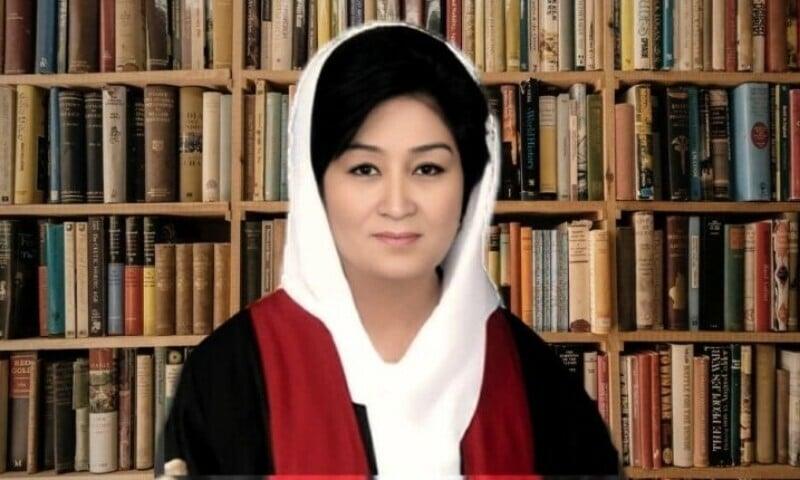Islamabad:
The judge of the Constitutional Banc Musarrat Hilali questioned the justification behind the transfer of 103 workers from Pakistan Tehreek-E-insaf to the military guard on the 5,000 orders on May 9.
She was investigating the accusations against those whose trial was led to an anti-terrorism court, in particular if they also faced allegations of ransacked military installations.
The constitutional bench led by judge Amin Ud-Din Khan and including judge Muhammad Ali Mazhar, judge Hasan Azhar Rizvi, Judge Musarrat Hilali, Judge Naeem Akhtar Afghan and Judge Shahid Bilal Hassan heard the case.
Advancing his arguments, the lawyer for the founder of the PTI, the founder Imran Khan, Uzair Bhandari, said that the provisions of the Constitution should be examined to determine what is authorized.
He argued that ordinary changes cannot infringe fundamental rights. He quoted judge Jamal Mandokhail saying that the status of the armed forces under article 83-A should be taken into account, adding that the army law contains no provision other than article 2 (1D1) .
Judge Mandokhail replied that article 243 already applies. In response, Bhandari stressed that the previous judgments of Mandokhail judge on the issue were available and stressed that the accused’s confession is essential. He argued that outside the court martial, no other provision could be applied.
Judge Amin Ud-Din Khan pointed out that it was not necessary to apply the court martial. Bhandari argued that it was not as simple, because the FB Ali case clarified the status. It will be applied to any member concerned in accordance with the law. Those with section 2 (1D1) are not 83-A. If they are included, it will not be necessary to consider fundamental rights. The act of the army only concerns discipline, he said.
Judge Amin noted that employees under section C would not have to take an oath. Bhandari argued that section C employees cannot lead the court martial, adding that it is still led by officers.
Judge Amin pointed out that members of the armed forces would determine the nature of the crime. Bhandari argued that the nature of the crime does not affect fundamental rights.
Judge Amicin Khan asked what would happen if someone is in article 2 (1D1). Bhandari argued that the justice system cannot be canceled on this basis, adding: “Our point is that civilians cannot be subject to the martial system of the court.” During one of the previous hearings, a member of the constitutional bench had questioned what could happen if a country violated international laws.
“What would be the consequence if international laws are not followed?” Justice Jamal Khan Mandokhail asked Salman Akram Raja, the lawyer for one of the rioters on May 9 who were tried before a military court.
During the arguments on behalf of his client, Salman Akram Raja said that civilians could not be courted by the Court because this means eliminating them from their fundamental rights. He said martial civilians are also violating international standards for a fair trial.
“International standards require trials to be held before the open courts, led independently and transparent. According to international law, trial decisions should be made public, he said.




